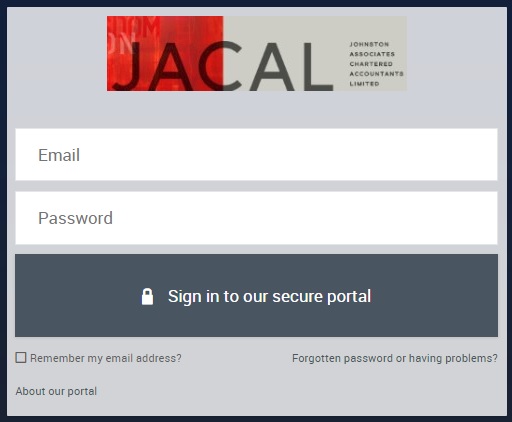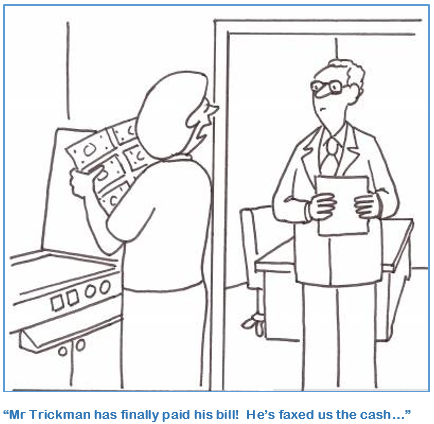WINTER 2020
TOPICS IN OUR NEWSLETTER THIS QUARTER
TAX – TIME FOR CHANGE
Tax changes in recent years, at least as they have affected the typical SME and SME owners have been largely tinkering, except perhaps in respect of tightening up on rules aimed at property speculation (but which unfortunately go somewhat further than mere property speculation). Now is the time when we need to be incentivising and assisting those in our communities who have ideas, skills, and the willingness to take calculated business risks.

These are the people that we want to encourage to start a business or expand or improve their existing one: to employ that extra person, start a new product line, enter a new market, invest in new technology, undertake some research and development, and ultimately grow our cake – increase the wealth of this country.
Tax has a role in helping grow a bigger cake, so below are some thoughts;
- Re-indexation of the tax thresholds in terms of the income figures at which tax rates start to apply, at least based on CPI or average income movements. This hasn’t been done since October 2010 – ten years ago! Backdate to 1 April 2020
- Big increase in small asset write-off deductions, and simplify the rules around how these apply. The $1,000 threshold which will apply once the current temporary (one year) increase to $5,000 finishes should be at least $10,000. Perhaps have a deduction allowed for up to $20,000 of new assets each year – similar to the legal expense deduction rule which allows up to $10,000 of deduction each year. Backdate to 1 April 2020
- Depreciation loading on new assets (with the exception of buildings) of 50%, for the current and future income years
- 150% deduction allowed on R&D expenditure which results in NZ owned IP
- Allowing couples to file joint tax returns if they choose
Allowing couples to file joint tax returns if they choose;
The family ‘unit’ is perhaps the foundation that safe and healthy and contributing communities are built on. It is hard to argue with this.
It’s time our income tax system was changed to reflect this, and to put more money back in families’ pockets.
Some countries operate an elective tax system where couples can choose to be taxed as a couple rather than as individuals. In other words they file a combined or ‘joint’ income tax return and often end up paying less tax in total due to the way personal marginal tax rates work, and the ‘averaging’ effect that filing as a couple achieves in many cases. One could make a rational argument that perhaps that taxing option should always have been available in New Zealand given the central importance of the family unit, and also on the basis of the real world economics of the family unit (and I am talking about family in the broad sense here – not the ‘nuclear family’ concept I was taught about at school).
I believe it is time to adopt this approach in New Zealand. Such an approach I think would reflect the reality of how many or perhaps most family units operate. This was the view of Peter Dunne, former Minister of Revenue. In fact he had a bill before parliament which proposed a tax credit for couples with children, which was designed to achieve something along the lines of what I have described above – a family being taxed on its ‘family income’, rather than each individual being taxed on their personal/individual income. Mr Dunne’s bill passed its first reading in 2010 and made it to Select Committee but then made it no further and then lapsed in 2017.
One of the hurdles identified in respect of that bill at the time was that supposedly under the Bill Of Rights Act such a law would discriminate against those not in a relationship with children. Really? Please forgive my ignorance – I’m not a lawyer and I’m certainly no expert on the Bill Of Rights, however to a lay person is that really “discrimination”? If so, is Working For Families also discrimination since it is in part based on the number of children you have – the same issue raised in relation to Mr Dunne’s bill?
Putting that aside, I can think of no good reason why a family with a single income earner earning $100,000 should pay significantly more tax than the same family with two income earners earning $50,000 each. Families with one primary income earner are being overtaxed. Now is the perfect time to fix that, put more money in families pockets, and have the tax laws more accurately reflecting how many families operate.
Mark Davies – Director of Tax, Johnston Associates
COVID-19: IRD NEW SELF-SERVICE OPTIONS FOR CUSTOMERS FACING HARDSHIP

Use-of-money interest and penalties remission
You can now apply through your myIR for remission of penalties and interest if they have been impacted by COVID-19. You may have received an email advising of this on 8 June 2020.
To do so; Log in to your myIR, select the “I want to” menu, then click “notify of impact by covid-19″. If you are unsure or confused about what to do, please contact your Jacal advisor for assistance.
The following criteria apply for requests for remission:
· Some or all amounts owing were due on or after 14 February 2020.
· The ability to pay by the due date, either physically or financially, has been significantly affected by COVID-19.
· you have contacted IRD as soon as practicable to request relief and will be required to pay the outstanding tax as soon as practicable.
Once you have submitted a request, you cannot submit another one. Although if you wish to provide more information you can send a web message through myIR.
Instalment arrangements
A similar process will apply for setting up an instalment arrangement in myIR.
There is a new check box at the end of the self-service instalment arrangement process – “I have been affected by COVID-19″. This is subject to the same criteria as use-of-money interest and penalties remission.
When processed, the arrangement will take effect automatically overnight.
The IRD says…..”However, if the arrangement defaults, and the core tax is not paid, the penalties and interest will be reinstated from the original due date. If your client gets into this position, we strongly recommend that they contact us as soon as possible to discuss other options that may be available to them…”

SMALL BUSINESS CASHFLOW (LOAN) SCHEME APPLICATIONS EXTENDED TO END OF YEAR
Applications for the small business loan have been extended to end of year. Businesses can apply for a loan through myIR. Eligible businesses will be entitled to a loan amount of $10,000 plus $1,800 per full-time-equivalent employee, to a maximum of $100,000.
The annual interest rate is 3% beginning from the date of the loan being provided. Interest will not be charged if the loan is fully repaid within 1 year.
For more information go to ird.govt.nz/business-loan
COMPANIES OFFICE CHARGES INCREASED
BAD DEBTS WRITE-OFF
PORTAL PUBLISHING

In recent weeks Auckland Office started using the secure Portal as the main channel for sending clients’ annual accounts and signing documents.
The Portal provides a quick, easy and secure way of electronically signing the documents simply by hitting a “Sign” button.
Auckland Office clients may already be familiar with the Portal as the last three years annual Terms of Engagements have been published this way.
INTRODUCING JAYME-LEE…
We are very pleased to introduce Jayme-Lee…our new Auckland Office Receptionist.
Jayme-Lee is the new welcoming face at JACAL Auckland office – she has a lovely manner and you will find her very friendly and helpful.
She has a customer service and credit control background and we feel sure she will keep all of our team in line!
Outside of work, Jayme-Lee is a very busy young mum of a 10 year old and a pre-toddler and is interested in travel, music, outdoor adventure and cars.
We’re sure you will enjoy meeting her either on the phone, or in person at the JACAL front desk.

FOLLOW US ON SOCIAL MEDIA
Johnston Associates has decided to provide more regular information via social media channels – namely Facebook and LinkedIn. We will continue to publish our quarterly newsletter, but you will find more regular and timely information through these channels.
So choose your preferred outlet by clicking on one of the buttons below, and don’t forget to follow us!
IMPORTANT PAYMENT DATES TO REMEMBER

JULY 28th 2020
- GST returns and payment due for period ending June
AUGUST 28th 2020
- GST returns and payment due for period ending July
- 1st Provisional Tax instalment (for March balance date)
- Student Loan interim payment due date


Disclaimer – While all care has been taken, Johnston Associates Chartered Accountants Ltd and its staff accept no liability for the content of this newsletter; always see your professional advisor before taking any action that you are unsure about.





